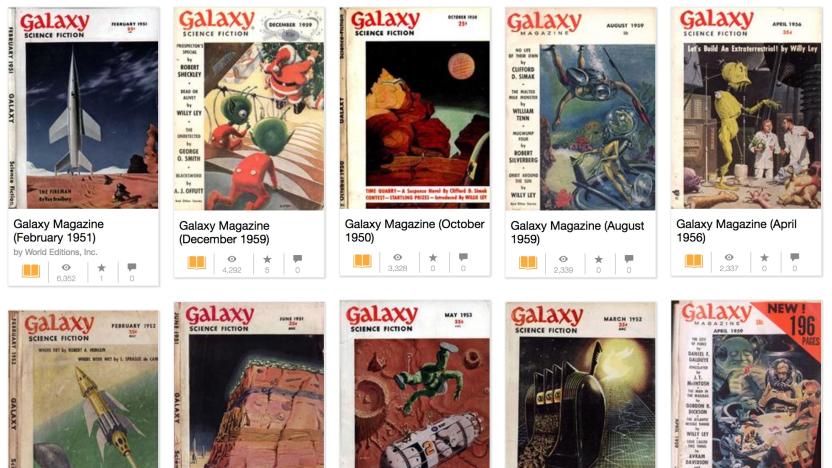digest
Latest

Seminal sci-fi magazine 'Galaxy' is now free online
The next time you watch a big blockbuster sci-fi film like Alien: Covenant, you can thank the original pulp magazines. The written form of the popular genre got its start in comic book-sized magazines like Amazing Stories, Astounding Science Fiction, Galaxy Science Fiction, The Magazine of Fantasy & Science Fiction and Isaac Asimov's Science Fiction Magazine. These publications, under the direction of influential editors like John W. Campbell, Jr., helped improve the genre from basic adventure stories to more thoughtful, well-written speculative fiction by authors like Robert Heinlein, Isaac Asimov, and Arthur C. Clarke. It's not an overstatement to say that these magazines created the current science fiction craze. Now, Galaxy Science Fiction, a magazine that published Ray Bradbury's "Fahrenheit 451" and Alfred Bester's "The Demolished Man," is available for free online.

Rumor: Patent hints at casual Zelda title
If you feel like a bit of light reading, you might want to turn your attention to a patent recently filed by one Shigeru Miyamoto for a "computer-readable storage medium." Sounds thrilling, right? However, the "medium" in question isn't what has had speculators buzzing for the past 24 hours -- the game which is referenced in the patent as an example for how the medium will be implemented is mysteriously titled Legend of OO. We wouldn't blame you for jumping to pointy-eared, Hylian conclusions.NeoGAF's and CVG's analysis of the uber-verbose patent ultimately points to a handful of gameplay features that would make the next Zelda title more casual audience-friendly. These include hint videos which would be embedded into the game, which would unlock when the player gets stuck on a particular puzzle for a set amount of time; a "digest" mode which would show the game's important cinematics and gameplay sequences, giving the player the opportunity to take control of the game at any point; and a "scene menu" which would let the player choose exactly where to jump into the story.This speculation is supported by Miyamoto's expressed wishes to make future Wii Zelda titles more accessible to a broader audience (this sentiment seems echoed in the patent itself) -- but keep in mind that Nintendo doesn't always cash in on every patent it owns. Also, the Legend of OO title described in the patent could just have been an example, not an actual game in development. Even if it is, we can't be certain that OO doesn't stand for, like, Nintendogs or something.

